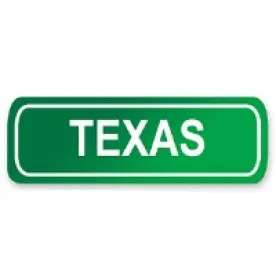In McGinnes Indus. Main’t Corp. v. The Phoenix Ins. Co. (Case No. 14-0465), the Texas Supreme Court by a 5-4 vote joined the majority of other courts to have considered the issue and answered in the affirmative a question certified to it by the Fifth Circuit Court of Appeals: Whether the EPA’s PRP letters and/or unilateral administrative order, issued pursuant to CERCLA, constitute a “suit” within the meaning of the CGL policies, triggering the duty to defend.
In the 1960s, petitioner McGinnes operated a paper mill in Pasadena, Texas, which disposed of sludge and pulp into disposal pits near the San Jacinto River. The EPA subsequently investigated the site and identified McGinnes as a potentially responsible party (“PRP”) under the federal Comprehensive Environmental Response, Compensation, and Liability Act of 1980 (“CERCLA”). In 2007 and 2008, the EPA informed McGinnes that it was a PRP and offered it “the opportunity to enter into negotiations concerning cleaning up the site and reimbursing EPA for costs incurred.” The letters included requests for information about the site and advised McGinnes that a failure to respond could result in penalties of up to $32,500 per day. Ultimately the EPA demanded that McGinnes pay $378,864 in cleanup costs.
McGinnes demanded a defense to the EPA proceeding from CGL carriers who had issued it policies that were in effect during the time the disposal took place. The policies provided that:
“The company will pay on behalf of the insured all sums which the insured shall become legally obligated to pay as damages because of . . . property damage to which this insurance applies, caused by an occurrence, and the company shall have the right and duty to defend any suit against insured seeking damages on account of such . . . property damage. (italics added).” The insurers, however, refused to provide a defense on the basis that in their view the EPA proceeding was not a “suit” as that term was used in the policy. “Suit,” the insurers argued, commonly refers to a proceeding in court, not to demand letters received from an administrative agency.
The Texas Supreme Court rejected the insurers’ arguments and took a broader view of the word “suit” as it was used in the policies. Three considerations tipped the scales for the Court:
First, the Court considered the history and purpose of CERCLA and its effect on environmental enforcement proceedings. The Court noted that before CERCLA was passed in 1980, the EPA would have had to file suit against McGinnes to force a cleanup of the site, which would have triggered the insurers’ duty to defend. CERCLA, the Court reasoned, effectively redefined “suit” in the context of cleanup claims to mean proceedings conducted by the EPA. This legislative change, the Court held, did not eliminate McGinnes’s right to a defense from its insurers under the policies.
Second, the Court found it “well-settled” that cleanup costs under CERCLA are damages that would be covered by the CGL policies at issue, and held that it would “create[] perverse incentives and consequences” if the policies covered damages but did not provide a duty to defend.
Third, the Court found comfort in the fact that of the sixteen states to consider the definition of “suit” in similar circumstances, only three (California, Illinois, and Maine) had adopted the interpretation urged by the insurers, while thirteen (Alabama, Colorado, Connecticut, Iowa, Kentucky, Massachusetts, Michigan, Minnesota, Nebraska, New Hampshire, North Carolina, Vermont, and Wisconsin) had determined that a duty to defend did exist.
The Texas Supreme Court therefore joined the majority of courts and held that the word “suit” in standard-form CGL policies applies to EPA proceedings under CERCLA, triggering the duty to defend. The insurers in McGinnes have filed an unopposed motion for extension of time to seek rehearing, which the Court granted. The insurers’ motion for rehearing, if any, is due to be filed on or before August 12, 2015.




 />i
/>i
